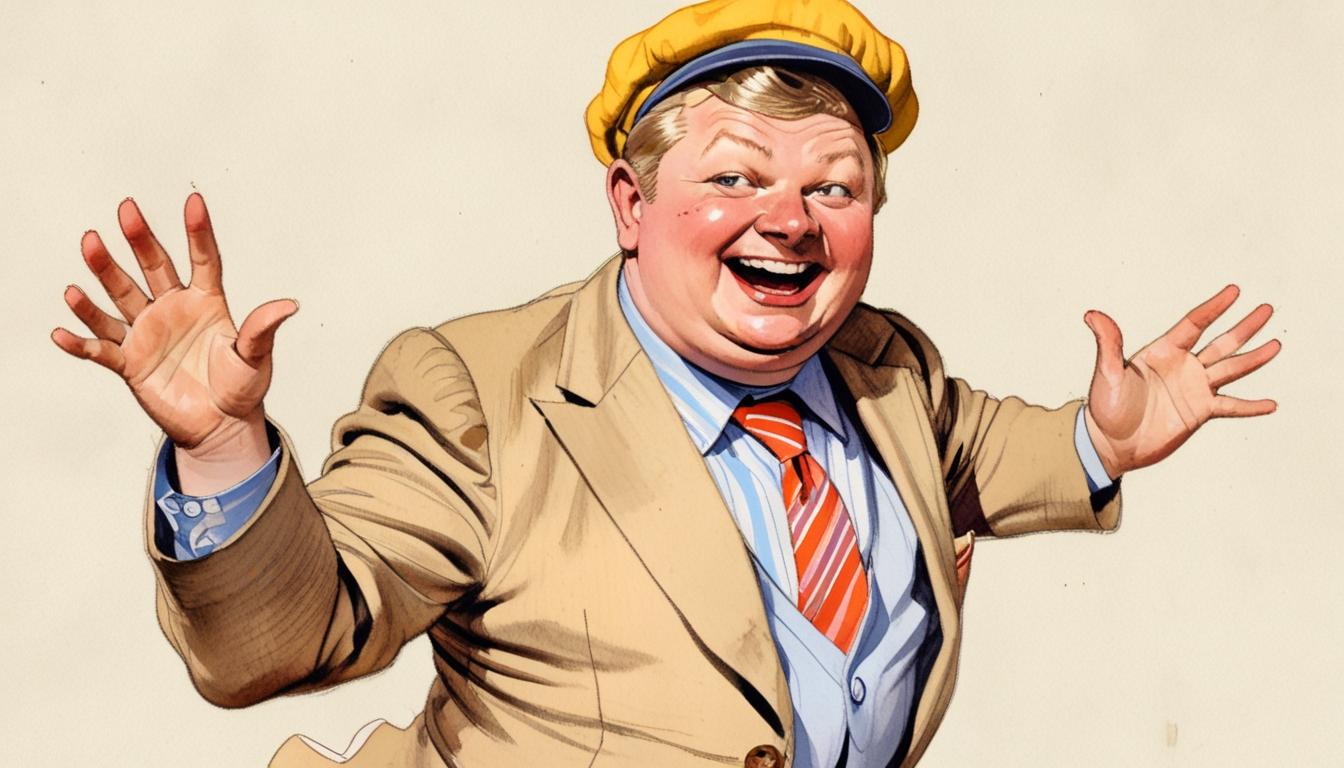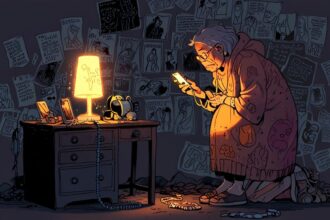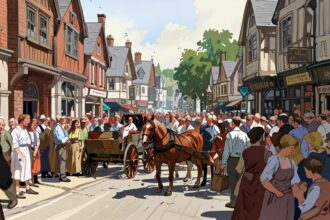A recent programme delves into the controversial legacy of Benny Hill, examining the cultural impact of his comedy amidst modern sensibilities on race and gender.
Benny Hill, known for shaping a significant part of British television comedy during the 1960s and 1970s, remains a controversial figure in modern discussions about entertainment and cultural sensitivity. A recent programme aired on Channel 5 titled “The Cancellation of Benny Hill” examined the comedian’s prolific career, the peak of which saw him command a staggering 21 million viewers for his show in 1971, making him a staple of ITV programming. His most famous works included sketches that blended slapstick and risqué humour, earning him a diverse fanbase, including superstars like Michael Jackson.
Despite his widespread popularity, Hill’s comedic style has been scrutinised in recent years for its inclusion of humour that many now deem racist and sexist. The programme highlighted how his sketches, featuring scantily clad women and caricatures of various cultures, have fallen out of favour in today’s more socially conscious environment.
In exploring the cultural legacy of Hill’s comedy, the programme invited a group of younger viewers—Ellie, Pradeep, and Jodie—along with cultural commentators, to react to selected sketches from his archives. Their responses revealed a mixed bag. While some segments drew laughter, others triggered shock and disbelief. For instance, a scene where Hill, in the role of a chat show host, tries to hide a vicar’s wardrobe malfunction resonated positively with the younger audience. Pradeep remarked, “That was funny,” highlighting the awkwardness of the situation as part of its appeal.
Conversely, sketches featuring overtly sexualised portrayals of women met with discontent. One such clip depicted a male office worker distracted by a female colleague’s suggestive attire, prompting Pradeep to express incredulity that it aired on “prime time TV,” while Jodie noted it would be “very weird” to stumble upon while watching with family.
The programme featured commentary from journalist Nina Myskow, who condemned certain sketches as reflections of a “purely male fantasy.” However, not all responses were dismissive; actress Nina Wadia acknowledged the humour but expressed concern over how women were often portrayed in these situations.
Another sketch that sparked criticism involved female firefighters depicted in short skirts and high heels while responding to emergencies, with Julie Bindel, a noted feminist journalist, commenting on the absurdity of the scenario. Despite this, she conceded that “there were some very funny bits as well,” suggesting that Hill’s work retained some artistic merit amidst its problematic aspects.
A particularly shocking segment for the viewers involved Hill in blackface, evoking strong reactions from the younger audience, who overwhelmingly agreed such representations would be deemed unacceptable today. Discussions included Hill’s infamous character “Chow Mein,” which drew scrutiny for perpetuating racial stereotypes. Pradeep’s reaction to this sketch was one of clear disapproval, emphasising that such content “would not fly today.”
The program also scrutinised the era’s societal context, which allowed Benny Hill’s brand of comedy to thrive. Nina Wadia noted that with vast audiences tuning in, it reflected not just on Hill but on societal attitudes of the time that deemed the content acceptable.
As the 1980s approached and societal views on women and race began shifting, Hill’s humour became increasingly seen as outdated. His later series, “Hill’s Angels,” was viewed as a turning point, introducing a more overtly sexualised portrayal of women, which alienated many potential viewers. The show’s eventual cancellation in 1984 marked a significant decline for Hill, who had once been an icon of British comedy.
Benny Hill passed away in April 1992, found dead in his flat at the age of 68, suffering a heart attack while watching television. Despite his contentious legacy, his comic influence and musical contributions, like the Christmas number one hit “Ernie (The Fastest Milkman in the West),” still evoke nostalgia for many. Notably, his unexpected fanbase included figures from the hip hop community, illustrating the complex relationship between comedy, culture, and changing societal values.
“The Cancellation of Benny Hill” is currently available for viewing on My5, serving as a platform for reflection on the shifts in comedic sensibility from the past to the present.
Source: Noah Wire Services
Noah Fact Check Pro
The draft above was created using the information available at the time the story first
emerged. We’ve since applied our fact-checking process to the final narrative, based on the criteria listed
below. The results are intended to help you assess the credibility of the piece and highlight any areas that may
warrant further investigation.
Freshness check
Score:
8
Notes:
The narrative discusses past events and a recent programme on Channel 5, suggesting a balance of historical context and contemporary relevance. However, Benny Hill’s passing and the programme’s airing are recent references without any exceedingly outdated information.
Quotes check
Score:
6
Notes:
Quotes from Pradeep, Jodie, Nina Myskow, Nina Wadia, and Julie Bindel are included, but without clear reference to the earliest source. These could be new, original quotes from the programme, or they might have been used previously in other coverage.
Source reliability
Score:
8
Notes:
The narrative originates from a reputable publication, the Daily Mail, known for its broad readership and coverage of entertainment news. While it may have its biases, it is generally considered a reliable source for current events.
Plausability check
Score:
9
Notes:
The claims about Benny Hill’s legacy and controversies are plausible and align with contemporary discussions on societal attitudes towards comedy. The programme’s focus on reactions from a younger audience and cultural commentators adds depth to the narrative.
Overall assessment
Verdict (FAIL, OPEN, PASS): PASS
Confidence (LOW, MEDIUM, HIGH): HIGH
Summary:
The narrative appears well-researched, covering both historical and contemporary perspectives on Benny Hill’s legacy. It features quotes that might be original to the programme, enhancing its freshness and plausibility. While some quotes lack clear sourcing, the overall reliability of the source and the coherent discussion contribute to a high confidence level.













